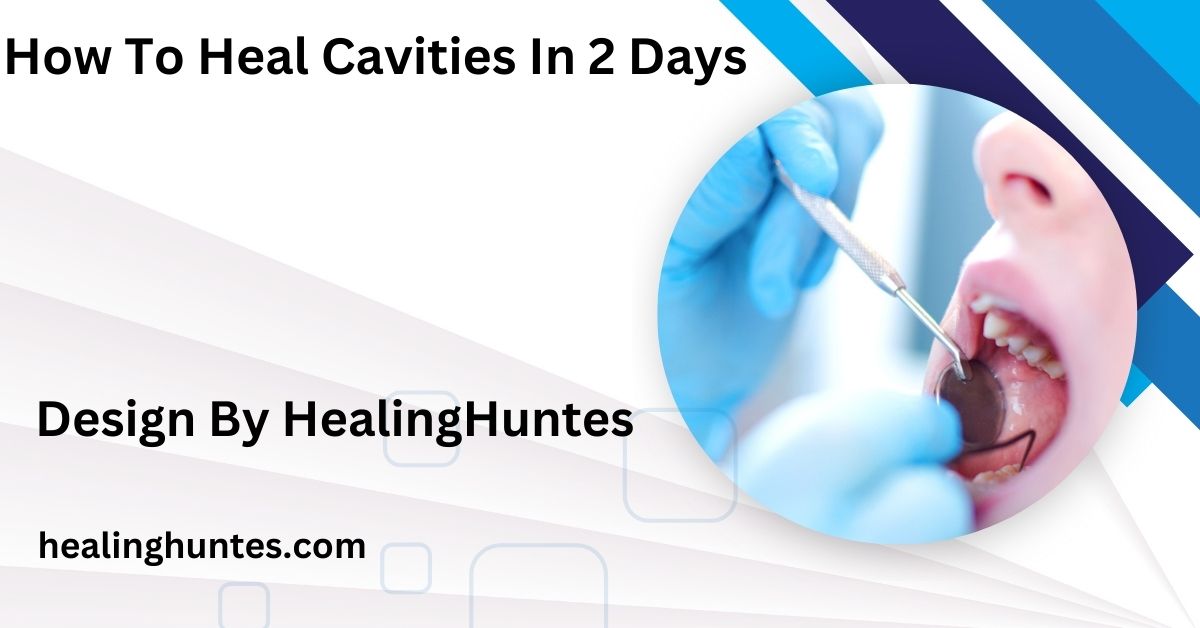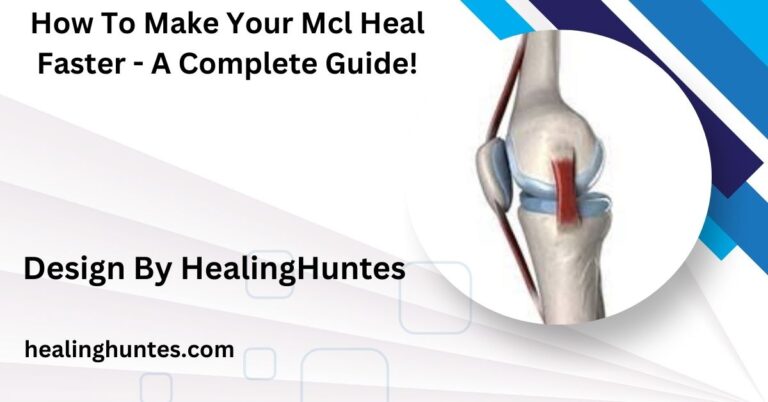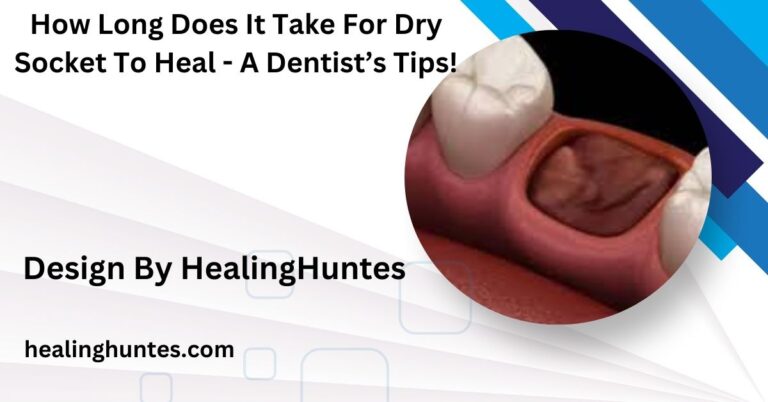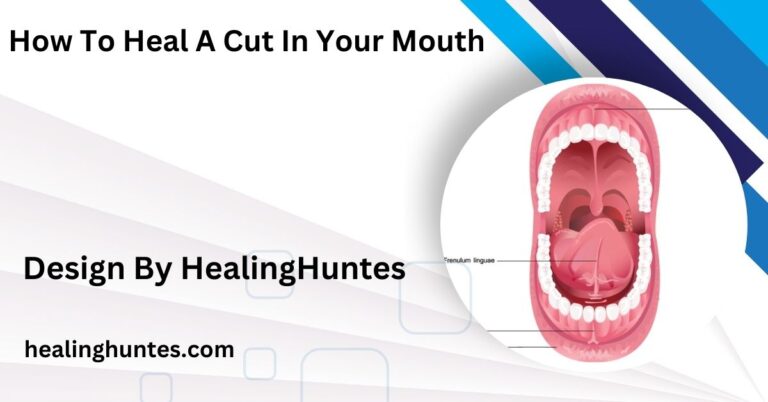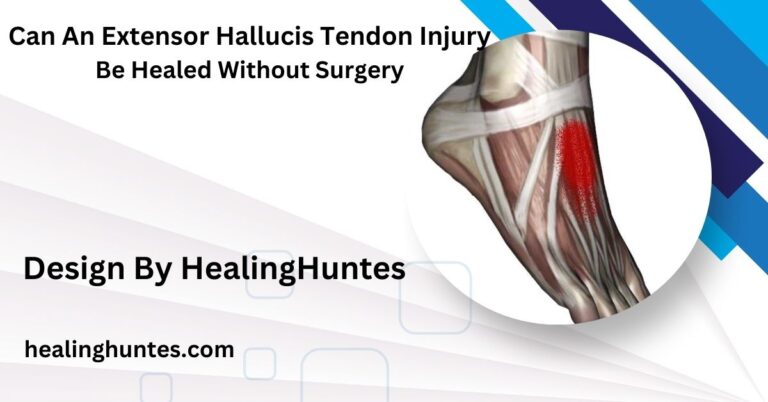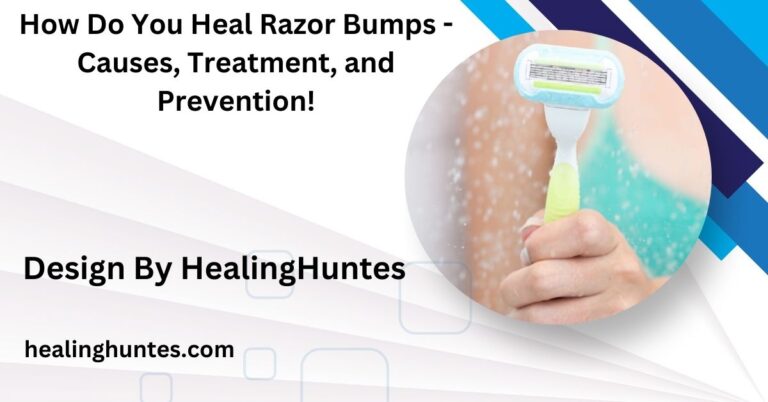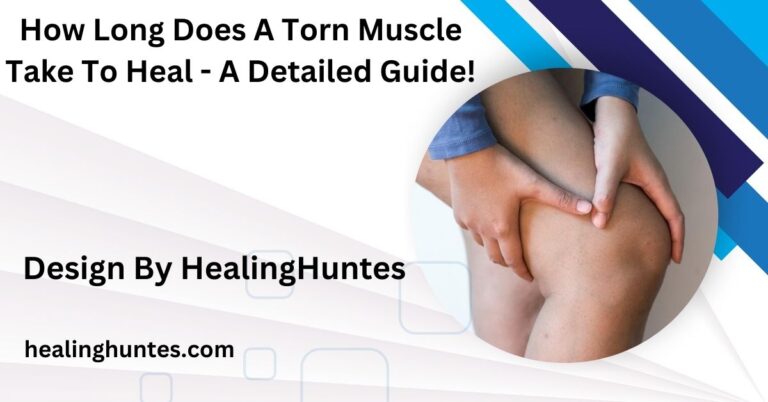How To Heal Cavities In 2 Days – Cavity Healing Tips!
While you can’t fully heal a cavity in just two days, you can manage discomfort and prevent further decay through excellent oral hygiene, a healthy diet, and natural remedies.
In this guide, we’ll dive deeply into what cavities are, explore why a two-day healing period is unrealistic, and discuss effective ways to reduce discomfort and prevent decay from progressing. Let’s explore realistic options and bust myths so you know exactly how to care for your teeth effectively.
Understanding Cavities: How They Form and Why They Hurt:
What Causes Cavities?
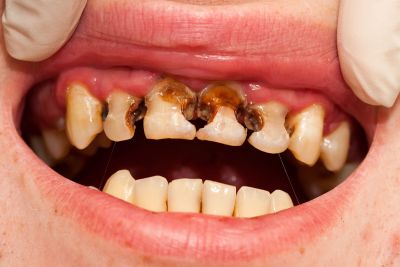
Cavities form as a result of a process called demineralization. Here’s how it works:
- Bacteria Feed on Sugars: When we consume foods or drinks high in sugar or carbohydrates, the bacteria in our mouths produce acid as they break down these substances.
- Acid Weakens Enamel: The acid wears down the hard outer layer of our teeth, called enamel, over time. If this acid exposure is frequent, it can cause small holes, or cavities, to form.
- Deepening Cavities Cause Pain: As cavities reach deeper layers like the dentin and pulp, they may cause severe pain and heightened sensitivity to hot, cold, or sweet foods.
Stages of Cavity Development:
Understanding the stages can help determine whether a cavity is too far advanced for at-home care:
- Stage 1: White Spots – At this initial stage, you may see white spots on your teeth, which signify mineral loss. This is the earliest and most reversible stage.
- Stage 2: Enamel Decay – At this stage, enamel is broken down and may show as a light brown spot on the tooth’s surface.
- Stage 3: Dentin Decay – When the decay reaches the dentin layer (the sensitive part beneath the enamel), pain and sensitivity are likely to increase.
- Stage 4: Pulp Involvement – If untreated, cavities can reach the pulp (the nerve-rich core), causing intense pain and potentially requiring root canal treatment.
Myth-Busting: Can You Truly Heal a Cavity in Just 2 Days?
While there are natural approaches to strengthen teeth, the concept of completely healing a cavity in 48 hours is misleading. Here’s why:
- Enamel Can’t Regenerate: Unlike bone, enamel does not have living cells, so once it’s eroded, it can’t regenerate. Remineralization can strengthen weakened areas, but it won’t “fill” the cavity.
- Cavities Develop Over Time: Cavity formation is a gradual process. It usually takes several months for enamel to weaken and form holes.
- Professional Restoration is Often Necessary: Cavities that reach the dentin or pulp require professional fillings, crowns, or root canal treatments to prevent further damage.
So, while a cavity can’t be healed in two days, there are still ways to slow down decay, reduce pain, and even remineralize minor enamel damage to strengthen your teeth in a short period.
Also Read: Healing Hands Scrubs – Best Retailers and Deals!
Steps to Manage and Relieve Cavity Symptoms in 48 Hours:
Although healing a cavity fully within 48 hours isn’t possible, you can take immediate action to manage pain, improve enamel strength, and halt further decay. Here are some effective ways to take control of your oral health in a short period.
Practice Excellent Oral Hygiene:
- Brush with Fluoride Toothpaste: Fluoride helps remineralize enamel by incorporating minerals back into the tooth surface. Use a soft-bristled brush and focus on reaching all areas, especially around existing cavities.
- Floss Regularly: Flossing removes food particles and plaque from between teeth, preventing bacterial growth and reducing the risk of cavity spread.
- Use Antibacterial Mouthwash: Using an antiseptic mouthwash can reduce bacteria levels in your mouth, slowing decay and providing added protection for your teeth.
Advanced Tips: Consider using an electric toothbrush with a timer to ensure you’re brushing for a full two minutes. Additionally, invest in a fluoride mouth rinse to provide an extra dose of cavity-fighting power after brushing.
Pay Attention to Your Diet:

Certain foods can promote or prevent tooth decay, so making dietary adjustments can go a long way toward stopping cavities from getting worse.
- Avoid Sugary and Acidic Foods: Sodas, candies, and even fruit juices fuel bacteria growth and increase acid in the mouth, speeding up the demineralization process.
- Opt for Enamel-Strengthening Foods: Dairy products, leafy greens, and foods high in calcium and phosphorus support enamel health.
- Stay Hydrated: Drinking water throughout the day helps wash away food particles and encourages saliva production, which naturally fights bacteria.
Advanced Tips: Snack on raw, crunchy vegetables (like carrots and celery) as they increase saliva flow and naturally clean the teeth. Chewing sugar-free gum after meals is also a helpful way to maintain a clean mouth between brushing.
Natural Remedies for Temporary Cavity Pain Relief:
Home remedies won’t heal a cavity, but they can help alleviate discomfort and reduce inflammation.
- Clove Oil Application: Clove oil contains eugenol, a natural numbing agent. Dab a small amount onto a cotton ball and apply it to the painful area for immediate relief.
- Saltwater Rinse: Rinsing with warm salt water reduces bacteria, relieves inflammation, and can help soothe sore areas.
- Cold Compress: If you’re experiencing swelling, hold a cold compress against your cheek near the affected tooth for quick relief.
Advanced Tips: Mix a teaspoon of baking soda with water to create a paste and apply it to your teeth for a mild anti-bacterial treatment. Additionally, using a tea bag (particularly green or black tea) on the sore area can help reduce inflammation due to their natural anti-inflammatory properties.
The Science Behind Remineralization: Strengthening Weakened Enamel:
If caught in the early stages, a cavity may be prevented from progressing through remineralization. This process deposits essential minerals back into the enamel, helping it become more resilient to future decay.
- Fluoride as a Remineralizer: Fluoride toothpaste, rinses, and professional treatments can harden weakened enamel, especially when used consistently.
- Mineral-Rich Foods: Calcium- and phosphorus-rich foods like cheese, almonds, and leafy greens help replace minerals lost in enamel.
- Xylitol Gum: Studies show that xylitol gum reduces cavity-causing bacteria, aids in remineralization, and promotes overall oral health.
Advanced Tips: Many over-the-counter products now offer remineralizing treatments with hydroxyapatite or amorphous calcium phosphate, which target weakened areas and help them regain strength.
Also Read: Earth’s Healing South – Your Trusted Cannabis Source in Tucson!
When to Visit a Dentist for Cavity Treatment:
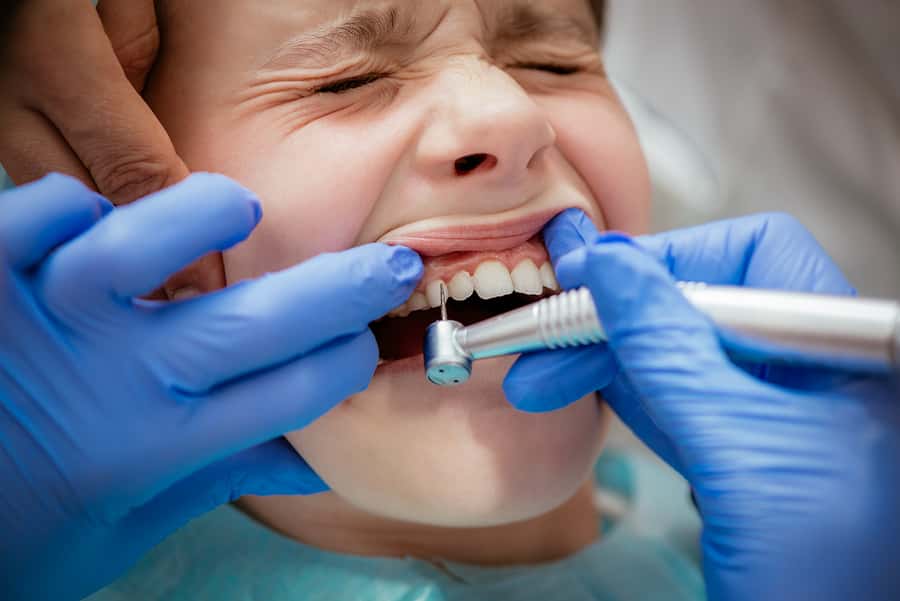
While at-home care is helpful, some situations demand professional dental intervention. Here’s when to make an appointment:
- Severe Pain or Sensitivity: Persistent or intense pain is often a sign that the decay has reached deeper layers, requiring a filling or even a root canal.
- Visible Holes or Dark Spots: If you can see a cavity, it likely needs to be filled. Dental fillings prevent decay from worsening and restore tooth function.
- Swelling or Gum Redness: This can signal an infection, potentially requiring antibiotics or more extensive treatment.
Advanced Tips: Regular dental cleanings and exams twice yearly are essential in catching cavities early, preventing costly and painful procedures. Your dentist can also provide prescription-strength fluoride treatments and personalized advice for optimal dental health.
Prevention is the Key to Cavity-Free Teeth:
Preventing cavities requires a dedicated approach to daily oral hygiene and lifestyle habits. Here’s a more detailed look at maintaining a cavity-free mouth:
- Brush Twice a Day for 2 Minutes: Use a soft-bristled toothbrush and fluoride toothpaste to brush effectively. Pay attention to the gum line and hard-to-reach areas.
- Floss Properly: Flossing once daily removes plaque that builds up between teeth, helping to prevent decay and gum disease.
- Limit Sugar and Acid Intake: Sugary snacks, sodas, and acidic foods erode enamel, so enjoy these in moderation or alongside meals to reduce exposure.
- Stay Hydrated: Saliva is your body’s natural defense against plaque and bacteria, so staying hydrated keeps your mouth in better condition.
Advanced Tips: Try incorporating tongue scraping and oil pulling (with coconut oil) into your routine. Both methods reduce bacteria and promote a cleaner mouth. Additionally, using a night guard can protect against nighttime grinding, which weakens teeth and may lead to cavities over time.
FAQ’s
- Can I heal a cavity in just 2 days?
No, you cannot fully heal a cavity in two days, but you can manage discomfort and slow down decay.
- What causes cavities to form?
Cavities form due to demineralization, where bacteria produce acid from sugars, weakening the enamel and creating holes.
- How can I relieve cavity pain at home?
You can use clove oil for numbing, rinse with warm salt water, or apply a cold compress to reduce swelling and discomfort.
- What foods can help prevent cavities?
Foods rich in calcium and phosphorus, such as dairy products and leafy greens, can help strengthen enamel and prevent decay.
- When should I see a dentist for a cavity?
You should visit a dentist if you experience severe pain, notice visible cavities, or see signs of swelling or gum redness.
Conclusion
While there’s no magic solution to heal a cavity in two days, you can take steps to reduce discomfort and stop the decay from worsening. Maintaining good oral hygiene, focusing on a nutrient-rich diet, and using fluoride products can help manage small cavities and prevent new ones. For advanced cavities, professional dental care is essential. Remember, the best way to “heal” a cavity is to prevent it in the first place with consistent oral care and regular dental checkups.
